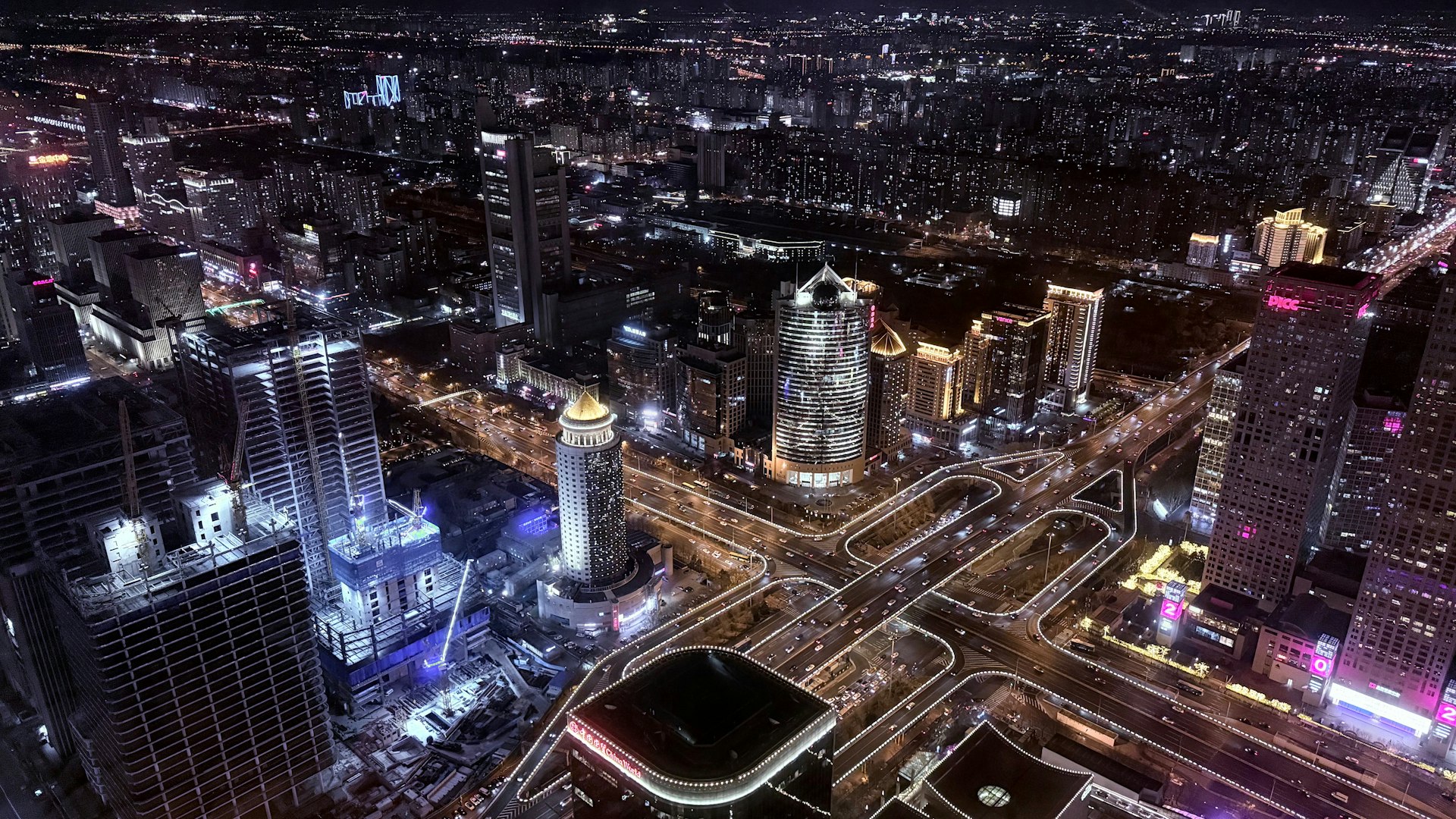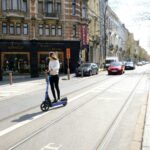AI-Powered Smart Cities: Shaping Urban Futures with Innovation and Actionable Solutions


Photo by Hoak Shen on Unsplash
Introduction: The Coming Age of AI-Powered Smart Cities
The rapid integration of artificial intelligence (AI) into urban environments is transforming cities worldwide. As urban populations grow and resources become increasingly strained, AI-driven smart city solutions promise enhanced efficiency, sustainability, and improved quality of life for residents. This article explores the core promises and actionable strategies behind the future of AI-powered smart cities, drawing on the latest trends, verified case studies, and concrete implementation guidance.
AI in Urban Management: Efficiency and Sustainability
AI is central to the evolution of urban management, enabling cities to process vast data streams in real time and optimize essential services. From energy grids to water management and traffic control, AI algorithms help cities reduce waste and improve resource allocation. For example, smart cities are now using machine learning to predict infrastructure needs, automate maintenance schedules, and trigger real-time alerts for citizens. These technologies are already being deployed to manage pollution, noise levels, and public health concerns, resulting in healthier, more resilient urban environments [1] .
Actionable Steps for City Leaders
To implement AI in urban management, city planners should:
- Invest in sensor networks to collect actionable data on energy, water, and environmental quality.
- Adopt AI-powered platforms for resource allocation and predictive maintenance.
- Prioritize green infrastructure and eco-friendly building materials to minimize environmental impact.
For guidance, cities can consult organizations specializing in smart infrastructure, such as the Urban Institute or local government innovation hubs.
Smart Mobility: Redefining Urban Transportation
Traffic congestion and pollution are persistent challenges in metropolitan areas. AI-powered traffic management systems analyze patterns in real time, optimizing signal timings and reducing gridlock. This leads to shorter commutes and lower emissions. The integration of autonomous vehicles, robotaxis, and expanded electric vehicle (EV) charging networks further promotes efficient, sustainable mobility. Connected infrastructure allows for seamless public transit, micro-mobility, and shared travel options, enabling cities to adapt quickly to shifting population flows [2] .
How to Access Smart Mobility Solutions
Citizens can benefit from smart mobility by:
- Using real-time transit apps provided by local transportation authorities.
- Participating in city-sponsored micro-mobility programs (e.g., bike or scooter sharing).
- Supporting initiatives for EV adoption and seeking out official charging station directories.
For updates on transportation programs, residents should consult their city’s official transportation department website or mobile applications.
Waste and Resource Management: Smarter, Cleaner Cities
Smart waste management systems use IoT sensors to monitor trash levels and optimize collection routes, reducing unnecessary pickups and fuel consumption. AI-driven recycling programs help cities meet sustainability goals while maintaining public sanitation standards. These solutions can be accessed through municipal sanitation departments, which often provide information on smart waste initiatives and recycling programs for local participation [2] .
Emerging Technologies: 5G, Blockchain, and Digital Twins
The backbone of next-generation smart cities is connectivity. 5G networks enable ultra-fast communication, supporting millions of devices and allowing real-time control of traffic, energy, and emergency systems. Blockchain enhances security and transparency, protecting citizen data and enabling automated, corruption-resistant transactions. Digital twins-virtual models of city infrastructure-allow for predictive analytics and scenario testing, reducing risks and optimizing investments [3] .
Practical Implementation Guidance
To benefit from these technologies:
- City managers should partner with telecom providers to expand 5G coverage and pilot smart infrastructure projects.
- Civic leaders can explore blockchain platforms for digital identity management and energy trading by consulting established tech vendors.
- Urban planners may leverage digital twin software offered by leading engineering firms for infrastructure modernization.
Residents interested in these programs can learn more by attending public forums or contacting their local city innovation office.
Citizen Engagement and Ethical Innovation
AI-powered smart cities are increasingly focused on engaging citizens and safeguarding ethical standards. Solutions include citizen portals for feedback, transparent governance through blockchain, and real-time alerts for public health and safety. However, cities must balance innovation with privacy and data security, ensuring that AI is deployed responsibly [4] .
How Residents Can Participate
Residents may:
- Participate in city surveys and feedback initiatives promoted on official city websites.
- Engage with local government on urban planning and digital security issues through public meetings and forums.
- Monitor city announcements and alerts via verified mobile apps or official social media channels.
Challenges and Solutions in Smart City Development
Despite the promise of AI-powered smart cities, challenges remain. These include data security risks, infrastructure costs, and ethical dilemmas. Cities can mitigate risks by investing in cybersecurity, adopting transparent data practices, and prioritizing citizen education. Alternative approaches such as phased technology deployment, open data initiatives, and cross-sector partnerships may help cities achieve their goals without overextending resources [3] .
Invisible AI: Leveraging Existing Data Streams
A growing trend is the use of “invisible” AI solutions that utilize existing data streams, minimizing the need for expensive physical upgrades. By integrating AI with current infrastructure, cities can enhance efficiency and resilience while reducing costs. This approach allows for scalable innovation and may be accessible to cities with limited budgets [5] .

Photo by Juan Domenech on Unsplash
Steps for Accessing Smart City Services and Opportunities
To access the benefits and services offered by AI-powered smart cities, citizens and businesses can:
- Visit official city government websites for directories of smart services and ongoing initiatives.
- Contact city innovation departments or urban planning offices for guidance on participating in pilot programs.
- Attend local public forums or workshops on AI, IoT, and digital transformation.
- Use search terms like “smart city programs [Your City]” or “AI urban initiatives [Your Region]” to locate relevant information.
- If interested in business or partnership opportunities, reach out to municipal economic development agencies or chambers of commerce for guidance.
For direct support, consider calling your city’s main information line or emailing the office of technology and innovation. Each city typically maintains a digital portal where residents can sign up for service updates, notifications, and public involvement opportunities.
Conclusion: Building Tomorrow’s Cities Today
The future of AI-powered smart cities is unfolding rapidly. By leveraging emerging technologies, prioritizing sustainability, and fostering ethical innovation, cities can create environments that are efficient, resilient, and responsive to citizens’ needs. Whether through improved transportation, resource management, or digital engagement, the opportunities for urban transformation are vast. Residents and businesses alike can access these benefits by staying informed, participating in local initiatives, and seeking out official channels for involvement.
References
- [1] Tomorrow.City (2025). Smart city trends for 2025: AI in urban management and sustainability.
- [2] OneSimCard IoT Blog (2025). Top 10 IoT smart city trends to watch.
- [3] Adam.ai Blog (2025). The future of smart cities: How AI and IoT are reshaping urban life.
- [4] Deloitte Global (2025). AI-powered cities of the future: Urban planning and resource management.
- [5] The Fast Mode (2025). The AI revolution of 2025: Transforming smart cities with predictive power and ethical innovation.






